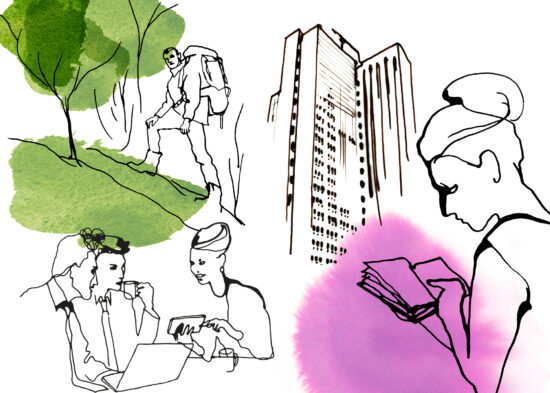Results from the project
Nudge plus in tourism: reflexive behaviours and reflective attitudes
BFUF Rapport #28 Nudging – hur besöksnäringen kan uppmuntra till ett mer hållbart beteende
What is the project about?
– We will investigate opportunities to reduce the hospitality industry’s carbon footprint by helping smaller players find solutions that lead to increased sustainability. Together with entrepreneurs, especially in nature tourism in rural areas, we will explore, test and simulate innovative working methods.
Why is this important for the hospitality industry?
– A majority of the companies in the hospitality industry are small with fewer than ten employees. The climate impact of an individual smaller company will be small, but overall their impact will be great. Small companies in nature tourism often have a great desire to develop a more sustainable business model, but at the same time may have limited skills, knowledge and resources. This makes it more difficult to test new ideas and invest in innovations to integrate into the business. It can also be a challenge both to find one’s role in the big picture and to see in what way one can contribute to a reduced carbon footprint.
What result do you hope for?
– Our hope is to find simple methods and good examples that can be scaled, adapted and used by many and thereby contribute to reduced climate impact for the entire industry. This will not just be important when tourism starts up again after the pandemic. We need to address the issues of sustainability related to the negative consequences of mass tourism.
How to do it?
– We will use experimental design, a research method that is not so common in tourism science. We will conduct research in the university’s simulation laboratory RCR Lab. The lab, which is most often used for risk and crisis research, is like a big white box. It uses video, sound, animations and sounds to simulate different situations and scenarios in 360 degrees. By changing conditions, you can examine how the participants act and what choices they make in any given new situation.
Which companies will you collaborate with?
–We collaborate with players in Järvsö, one of the most popular year-round destinations in Sweden’s sparsely populated areas. Destination Järvsö has an ambition to become Sweden’s first eco-certified destination and has developed a number of strategic documents for sustainable development.
What are your challenges?
– We hope that the corona situation will soon be better so that we can recruit participants for the experiments. We need to gather them physically in the lab environment for the test, we can’t do the experiments digitally. It can also be a challenge to agree on scenarios to test, which are interesting for all parties.
About the researchers
Lusine Margaryan, assistant lecturer, PhD in tourism science, Maria Lexhagen, associate professor, PhD, responsible for Etour, and Dimitri Ioannides, professor, PhD in cultural geography, all at Mid Sweden University, Etour
Project partners
Destination Järvsö AB (DMO), Stenegård cultural center and Järvzoo zoo are participating in the project.
Project facts
Project
Supporting adoption of climate-smart solutions with lab-based experimental social science
Research organization
Mid Sweden University
Project Manager
Lusine Margaryan
Members
Maria Lexhagen, Dimitri Ioannides
Period
Jan. 2021 – Dec. 2022
Amount
SEK 1,300,000


